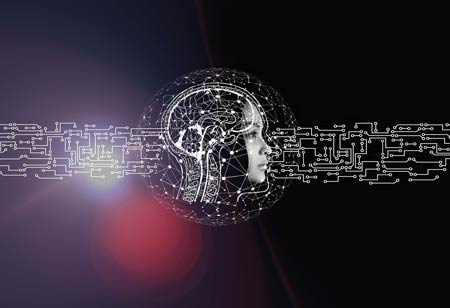THANK YOU FOR SUBSCRIBING
Be first to read the latest tech news, Industry Leader's Insights, and CIO interviews of medium and large enterprises exclusively from Education Technology Insights
Trends Reshaping the Educational Sector Into a Digital-driven Space
With the educational landscape attaining paramount importance, a digital-driven transformation has emerged as an indispensable need.

By
Education Technology Insights | Thursday, December 08, 2022
Stay ahead of the industry with exclusive feature stories on the top companies, expert insights and the latest news delivered straight to your inbox. Subscribe today.
Digitised transformations like AI, machine learning, and augmented and virtual reality, in addition to elevated personalisation are highly reshaping the norms and limitations of the education sector.
FREMONT, CA: With the educational landscape attaining paramount importance, a digital-driven transformation has emerged as an indispensable need. To stay ahead of the competition, businesses must embrace digitisation at a rapid pace. Whereas, digitising the learning process frequently includes a variety of benefits such as improved communication, collaboration, and accessibility, as well as demonstrated engagement and interaction in practice.
Precisely, digital technology’s invasion has altered every aspect of human existence, with nearly half of the global population accumulating smartphones of their own with induced access to the internet. This, in turn, has highly transformed an individual’s interaction pattern, media consumption, and usage, while visualising the world at its largest.
Moreover, digital disruptions in recent times are highly impacting the future of education technology, transforming institutions’ methods of interacting with students. Hence, educational infrastructures and educators are shifting towards a technology-driven world to catch up with the accelerated pace in the sector. Thus, the domain envisions no sign of slowing down and is anticipated to evolve further in future years via varied transition trends.
AI and elevated personalisation are emerging as pivotal key sources in the education sector, as the expectations and standards for online learners are soaring on a large scale with enhanced quality. That is, leveraging Artificial Intelligence (AI) and Machine Learning (ML) tools enables effective customisation of contents, thereby facilitating eLearning technology developments in the domain. Additionally, it aids in estimating an individual's development, preferences, and potential, as well as affiliating suitable education solutions relatively.
Technical instruments and media that critically favour the extraction of information, its development, and its exchange are the crucial innovation factors that constitute education technology. Therefore, deploying augmented and virtual reality (AR/VR) enhances teacher instructions, in addition to creating immersive lessons with fun and engaging elements to satisfy students accordingly. Moreover, gaming technology simplifies the hardship that any tough subject matter encompasses and tames it into more interactive and easy-to-understand content.
However, learning analytics hold obvious impacts on eLearning, as the inclusion of varied data opens up more accurate predictions, with multiple choices to opt for in reality. As a result of its ability to facilitate a more progressive and advanced education system, it is critical for learning teams to critically rely on learning analytics for an efficient decision-making practice. Besides, the information and data accumulated have already exceeded terabytes and are anticipated to expand further in future years. Thus, an established synergy between AI-powered analytics and learning platforms paves the way for a more effective ecosystem globally.







